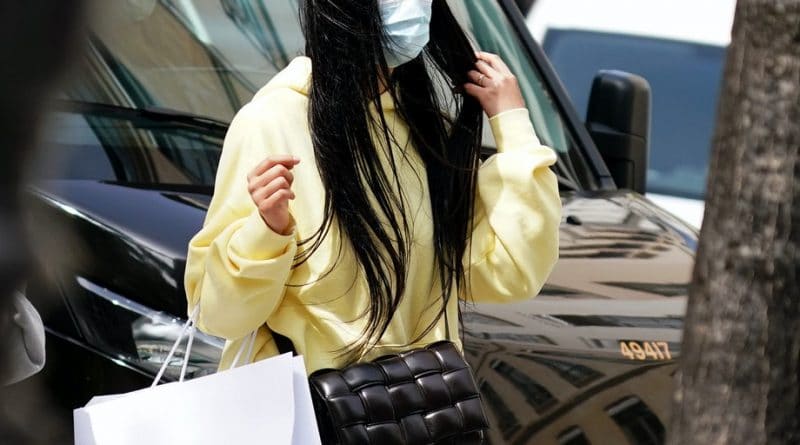Can Paris Fashion Week Survive a Coronavirus Second Wave? | News & Analysis, BoF Professional
PARIS, France — Some Paris fashion houses say they’re forging ahead with plans to stage live shows during fashion week this fall, despite surging coronavirus cases in the French capital.
France reported as many as 5,500 new coronavirus cases Wednesday — the biggest jump since mid-April — and restrictions aimed at limiting the outbreak’s spread are intensifying as the country braces for a potential second wave.
In Paris, masks are now mandatory in the street and any gatherings of more than 10 people require strict social distancing measures.
Still, French luxury’s biggest brands, Louis Vuitton and Chanel, confirmed this week that they plan to stage live shows with models, though both houses said it was too soon to say whether guests would attend in-person or if the events would be live-streaming only.
By implementing social distancing and other sanitary protocols backstage and for audience members, brands are hoping the events can go forward despite rising uncertainty on the kind of gatherings that will be permitted when fashion week begins on September 28, as well as who will be able to attend.
Fédération de la haute couture et de la Mode (FHCM), the trade group that organises Paris Fashion Week, is set to release a preliminary schedule next week. Houses staging in-person events will still ramp up live-streaming and other digital components, as the majority of international press and buyers are not expected to attend. Other houses are likely to opt for online-only presentations and are expected to release short films or other editorial content during the week, as many did during Paris’ online-only couture and menswear weeks in July.
“We’re in constant contact with the authorities to know what the rules are and how brands can stage their events safely. Houses have an array of possibilities to choose from to mix physical and digital content during this fashion week,” FHCM’s Executive President Pascal Morand said. Brands not based in Paris who may struggle to cope with travel restrictions will be the most likely to opt for online-only formats. “Clearly the closer you are based to Paris, the more feasible an in-person event will be.”
Big and established brands aren’t the only ones who still hope to hold physical shows: In addition to the likes of Hermès and LVMH-owned Christian Dior, small houses including Koché, Paco Rabanne, Nina Ricci, and New York-based designer Gabriela Hearst are also set to hold live events.
Adhering to health safety protocol and securing spaces big enough to allow for social distancing will present a logistical challenge and strain budgets for small brands that are already suffering disproportionately from the coronavirus’ impact on sales.
In July, Simon Porte Jacquemus became the first French designer to stage a physical runway show since the coronavirus pandemic in July—staging a show with mostly local guests spaced out across a wheat field in the countryside north of Paris. That show might have been a model for many brands who think they can safely stage their events this fall.
But coronavirus cases in France have multiplied since then, so authorities are likely to be even more vigilant in requiring brands to meet strict and rapidly evolving standards.
“It’s not just about social distancing, masks and hand gel. It’s about putting a global protocol in place so that the guests, models and everyone working at the show feels safe,” said Lucien Pagès, founder of the namesake Paris communications firm that represents Jacquemus. “This takes a lot of agility.”
Producer Alexandre de Betak, who is working on staging live Paris shows for Dior, Hearst and Ricci, said that the process takes careful consideration and flexibility. “From the start, we’ve planned everything knowing that the situation would evolve,” he said. “That the social distancing and other sanitary precautions would change and that we might be allowed to have an audience of 50, 100, or 200 or none at all.”
Regardless, brands are eager to try to seize the spotlight again this fall so that they do not lose the aura of prestige that comes from showing clothes on a Paris runway.
“The shows are how we make people dream and show creativity. If you don’t do it how can you still achieve the same notoriety?” Paco Rabanne fashion’s CEO Bastien Daguzan said. He added that the spotlight of Paris Fashion Week was worth the challenge of planning a live event, even knowing that the format might need to change dramatically at the last minute.
With fashion sales expected to plunge as much as 30 percent this year, and extensive travel restrictions meaning that international buyers, press and celebrities won’t be able to attend, it may seem surprising that Paris houses are insisting on forging ahead with physical events.
The uncertainty involved in planning events during a fast-moving health crisis has prompted trade show Première Vision to cancel its physical event for September. Outside of fashion, international events have been cancelled as far in advance as the World Economic Forum in Davos in January.
One reason brands might be able to maintain their plans as cases rise is that the virus is primarily circulating among young people in France, authorities say. While cases have risen sharply, the increase in hospitalisations has been far less dramatic.
The French government wants to avoid a new lockdown at all costs, but will “respond rapidly if we see the virus moving from young people to the more vulnerable populations,” Prime Minister Jean Castex said Thursday.
Another reason houses are holding out hope for staging in-person events is that they’re simply more effective. At a physical fashion show, guests including celebrities, influencers and journalists help to amplify a brand’s message by posting on social media or publishing videos and articles. Online-only events are cheaper, but lower levels of engagement with the digital fashion shows over the past summer showed that they have a more muted impact.
Perhaps most importantly, scuttling runway shows for an entire season of women’s ready-to-wear could pose an existential challenge to the ecosystem of designers, event producers, stylists and photographers who live off of Paris Fashion Week.
“Most brands want a return to some kind of normal rhythm,” Pagès said. “They want to be an example of how we can go on living with the virus.”
Related Articles:
How Impactful Were the Digital Fashion Weeks?


